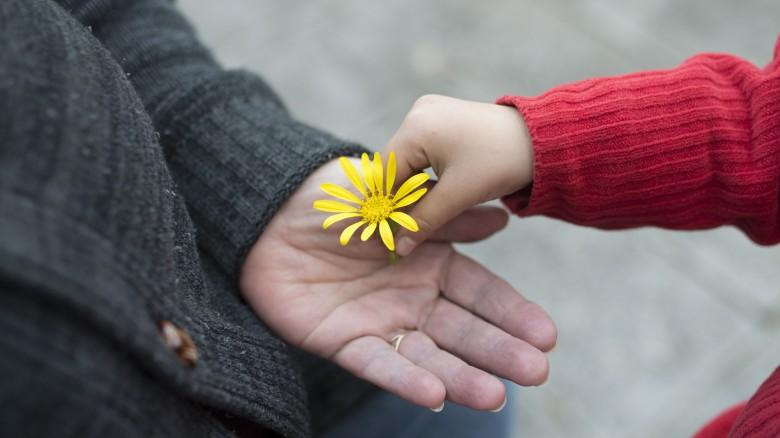Quality sleep, big thinking, and meaningful conversations are common parts of the lives of people who describe themselves as “happy”.
What is the secret of happiness? This may vary from person to person. But we do know that happy people have different habits and think differently from those who have a messed-up life. The good news is if you’re trying to be one of those happy people, acknowledge that the feelings you want to come from within and that you can turn your bad feelings around by adopting some simple habits.
Here are the things happy people do and don’t do.
1) They enjoy the moment.

Do clichés like “stopping to smell the roses” or “life’s little things” really cause happiness? Yeah.
Researchers call it “enjoy”; it’s about focusing on the moment you are in. Those who are most satisfied with their lives stop enjoying the beauty of life and the tiny, wonderful things in life, rather than multitasking and focusing on the negativity around them in the past, future, or present.
2) They meditate every day.

Meditation is one of the most effective ways to feel calm and mindful, which allows our brain to take the break it needs by occupying all the worries and anxieties in our minds. The best? It will only take a few minutes each day. For starters, you can download apps like Calm, Stop, Breathe&Think, Insight Timer, and Oprah & Deepak’s 21-Day Meditation Experience, Chopra Meditation.
3) They don’t hold grudges.

When it comes to happiness, forgiveness is essential. Holding a grudge means holding on to anger, resentment, pain, and other negative emotions that interfere with happiness. When you let go of these emotions, you free yourself from negativity so that there is more room for positive emotions to enter.
4) They spend money on others.

Michael Norton, associate professor of marketing at Harvard Business School and author of Happy Money: The Science of Happier Spending, says, “We’ve shown in our research that giving money to others makes people happier.” One of the reasons is that it creates social connections. If you have an island of your own, a big house and a car, you cannot be happy because we need people to be happy. But by contributing to someone, you establish a conversation and a connection with that person, and such things are important to be satisfied.
True friendships require investment. This investment does not always mean money, but it takes a lot of time. Truly happy people spend time (and money) on their relationships. The book Giftology and gifting expert John Ruhlin wrote about it.
5) They get busy, but they don’t rush.

Studies show that the feeling of “rush” causes stress and happiness. At the same time, people struggle to be happy by being busy enough. However, other research shows that maintaining a healthy work-life balance is essential because distress can lead to more distress later on.
If you’re overloaded and messy, consider this rule from entrepreneur Derek Sivers’ site: “When deciding whether to do something, go, ‘Wow! That would be incredible! Definitely! ah yes! –then “No.” say.”
6) They surround themselves with the right people.

Happiness is contagious. This means that when you surround yourself with happy and supportive people, you can gain confidence, increase your creativity, and have more fun overall. At the other end of the spectrum, when you hang around with negative people all the time, you become a member of their self-pity party, which is exhausting and no fun at all.
7) They don’t worry about unnecessary things.

Happy people focus their energies and efforts only on what really matters and is within their control. Remember, dealing with things you can’t control is a waste of time and will make you lean more towards the miserable side. In other words, master the art of “letting it go”.
8) They celebrate the success of others.

It’s no secret that having both a rich social life and healthy relationships is an essential ingredient for happiness. But happy people nurture and develop their relationships through “active and constructive” responses, which include celebrating the success of those around them.
As Martin Seligman explains in his book Flourish: “People we care about tell us about a victory, a win, and less important good things. The way we respond to them builds or destroys the relationship. There are four ways to respond, only one of which is building the relationship. It helps.”
9) They treat everyone with respect and courtesy.

Being kind, like happiness, is contagious. There’s even a name for it: “moral attitude”. Research by researchers at the University of California-Los Angeles and the universities of Cambridge and Plymouth in the United Kingdom says that witnessing kind behavior makes us feel warm and fuzzy.
Simone Schnall, a lead researcher at the University of Cambridge, said: “When you feel kind, not only become a better person, but you also help others. At the first opportunity, you do it yourself.”
10) They are optimistic.

Let’s be honest: Bad things happen to all of us, even the happiest and most optimistic people on the planet. The thing is, they don’t complain, they don’t whine, and they don’t let pessimism become a self-fulfilling prophecy. They stay optimistic by focusing on solutions to problems and reflecting on what they are grateful for.
11) They are proactive about relationships.

Evidence suggests that most relationships (primarily marriages) decline over time. But happy people try to maintain relationships by controlling their loved ones, being active and constructive listeners, and not being narcissistic when communicating.
12) They get enough sleep.

You’ve probably heard this a million times. However, quality sleep is absolutely necessary. If you need refreshment, a lack of sleep can negatively affect your health, productivity, and ability to cope with stress. If you’re not getting a good night’s rest, start by following a sleep schedule that makes use of natural light, avoiding bright lights before bed, exercising, avoiding alcoholic beverages, and eating just before bed.
13) They spend time in nature.

Nature has a calming effect and reminds us to slow down, breathe deeply and focus on the present moment. “People have been discussing the profound experiences inherent in writers from Thoreau to John Muir over the past 100 years,” researcher David Strayer of the University of Utah says. “There are now changes in the brain and body that show we are healthier mentally and physically when we interact with nature.” Simply put, spend time strolling in a park, go to the beach or take a walk.
14) They see problems as a challenge.

Happy people have changed their internal dialogue so that when there is a problem, they see it as a challenge and a new opportunity to improve their lives. In fact, you should just go ahead and forget the word “problem” completely.
15) They reward themselves.

Gretchen Rubin, the author of The Happiness Project, states, “The gift may sound selfish and meaningless, but it isn’t. Building good habits can be overwhelming. Gifts can be important.”
“When we reward ourselves, we feel energized, cared for, and satisfied. This improves our ability to be self-sufficient, and being self-sufficient helps us maintain healthy habits.”
16) They express their gratitude.

Studies conducted at the University of California-Davis show that daily expressions of gratitude improve their mood and energy and significantly reduce anxiety levels. This is most likely due to low cortisol levels. Every morning, write down the things you’re grateful for in a notebook and occasionally say “thank you” to loved ones and co-workers.
17) They are big thinkers.

The happiest individuals dream big and work hard to turn them into attainable goals. They are dedicated and disciplined and know their priorities: they know how to say “no”, take care of their health, step out of their comfort zone, and know that sometimes it’s necessary to start all over again.
18) They spend time alone.

While relationships are important to the happiness of some, we all need to be alone sometimes to catch up with ourselves. Spending time alone gives you a chance to clear your worries and anxieties, remember what you’re grateful for, and follow through on your dreams and aspirations. You can be alone in the morning, before everyone else wakes up.
19) They don’t find excuses.

It is effortless to blame someone for their failures. The problem is that it won’t help you get past the failures. Happy people take responsibility for their mistakes and use those failures as an opportunity to change their lives for the better.
20) They are development-oriented.

People are divided into two: fixed-minded and development-oriented when it comes to personality. The hard-headed believe that you are who you are, and there is nothing else to be done about it. This is a problem because it prevents them from growing and changing.
On the other hand, growth-oriented people believe that they can improve with little effort, which makes them happy because they are well suited to meet and overcome challenges.
21) They spend money on experiences, not material things.

Many studies show that people are happier when they buy experiences rather than material things because experiences evolve over time. People repeat those experiences more often; experiences are unique and include social interaction.
Also, materialism can cause negative effects. Sonja Lyubomirsky, in her book “The Myths of Happiness”, says: “A lot of research shows that materialism depletes happiness, threatens satisfaction in our relationships, harms the environment, makes us feel less likable, and reduces our ability to contribute less to others.”
22) They have morning routines.

Morning rituals are soothing and lay the groundwork for your day to move forward. It is important to establish and stick to a morning routine such as meditating, walking, reading an inspirational book, writing down gratitude, having a healthy breakfast or checking email.
23) They take care of themselves nicely.

Because body, mind, and spirit are interconnected, if you don’t physically take care of yourself, you will suffer mentally and emotionally as well. Start by getting quality sleep each night, eating a balanced diet, exercising regularly, and finding healthy ways to reduce and relieve stress.
24) They use the strengths of their characters.

Research shows that using one’s distinctive and strong characteristics more in life makes them feel happier and more satisfied. As Shawn Actor says in his book The Happiness Advantage : “When 577 volunteers were encouraged to identify their strengths and use it in some way, they became much happier and much less depressed. Even after the experiment ended, their happiness levels continued to rise for six months. It shows that the more you use it, the happier you will be.”
25) They have deep, meaningful conversations.

Happy people skip the small talks and have deep conversations. In fact, this is supported by research. Christopher Peterson, in his book Pursuing the Good Life, wrote: “First, happy participants spent more time talking to others, a result which is not surprising given the social basis of happiness. Second, the extent of small talk appeared to be negatively correlated with happiness. And third, the extent of actual conversation was associated with happiness. It was seen to be in a positive relationship, so happy people interacted socially with others, and that interaction explains the point.”
As a result,
if you want to be happier, (honestly, who wouldn’t?) start by picking up the above habits. To make it an enjoyable experience, get used to doing one first and then move on to the next. You will be surprised how amazing you will feel!














